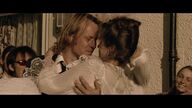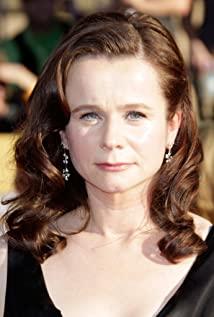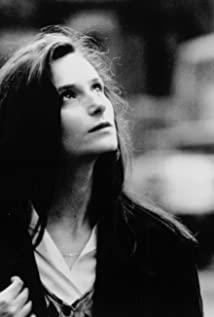After watching Lars von Trier's recent The Dancer in the Dark, Dogtown, The Antichrist, and watching this movie, I will naturally have a lesson from the past. Knowing Lars von Trier's style and preferences, Master La is as expected. In the early years, he was extraordinary, and he was able to shoot such impeccable works as breaking the waves.
The plot of the movie does not need too much introduction. A wife who believes that her devout faith in God and love has won her husband suddenly receives the bad news that her husband is about to face paralysis due to an accident. However, she did not shake her faith and loyalty to love at all, even when the husband lying in the hospital bed told a lie for her consideration - asking her to find a lover and have sex with someone else and then telling him it would give him a new life - - All accepted, no distractions.
Thus, the tragedy of the whole story begins, and of course, her frantic reaction from the wedding to the separation has already begun to take the lead in tragedy. She's constantly searching for her love interest for her faith, from the doctor caring for her husband to the old man on the bus, and finally the underworld boss on the ship. She would dress like a prostitute because she believed an angry word from her husband lying on the bed, and she would see her husband's little improvement as the result of her own efforts.
The final result can only be that she paid the price for this behavior that could not be understood and accepted by others, until she paid her life - the first time she went to the gang boss's boat as a prostitute to resist and left, the second time she went back, finally Tortured to death. She was seen as a sinner by priests, by judges and others as a psychopath whose husband was disabled and hypersexual, made fun of by children as a prostitute, and kicked out of her home by her mother.
In the end, and most ironically, when she died, her husband finally got better, stood up, and gave her a final funeral. On the second day of the funeral, bells rang in the sky, as if to announce the triumph and prayer of love and faith.
Seeing this, the first reaction of the vast majority of people will be to regard this film as a somewhat regrettable and shocking love story, an autobiography of a neurotic, paranoid, and creepy loyal wife. . However, those who have a little understanding of the master should know that the master has never scorned to praise any love beliefs, and has no intention to weave any romantic fantasies. The whole movie was full of extremely depressing and weird atmosphere before, and the characters in the wedding at the beginning were subtle. The manner and expression have already bought the foreshadowing. Using one of the most authentic cinematic language - shaky record-style shots, large close-ups, natural light, no background sound, Dogma95's rule - Master La subverts self-righteous beliefs and beliefs.
Religious teachings and moral principles throughout the ages are nothing more than using love and kindness to flaunt their self-righteous virtues and superiority. In the play again and again, the bishop in the church speaks in the most formal and serious tone of devotion to God and devotion to the faith, but finally classifies the truly steadfast as sinners again and again.
What is even more terrifying is that there is not a single bad person in the play, and even almost all the good people in the play, from doctors, Dudu, mothers to husbands, all have their emotional and moving sides. However, the whole film also implies a huge tragedy and misfortune, a woman because of paranoid ignorant love and finally pay for her life. Yes, where does the evil of human society come from? This is a proposition that classicism has never solved or even touched. In "Les Miserables", we can only see the inner struggle of good people against evil. But it is impossible to know the source of the deep-rooted evil of the wicked.
Are there absolute good and evil in this world? The heroine of the film, who can be seen as almost pure good, ends up being seen by the bishops as a sinner. The director's ending can be seen as a kind of self-solace, the real prime time of the movie should exist at the juncture between chapters, and in a cutscene of unrelated country songs against a landscape painting, the audience should have Re-examine the beliefs and opinions that have been deeply ingrained in your mind. Can true love really conquer everything? Does thinking about others really make the world a better place? Master La uses a true story to leave more room for our rationality rather than sensibility, and uses a tragedy to make us re-examine our beliefs. This is the greatness of this film.
View more about Breaking the Waves reviews











